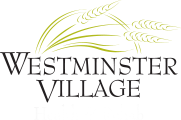Five Key Questions About Short-term Rehab, Answered.
Each year thousands of people are directed to enter short-term rehabilitation facilities after a stay in the hospital as a way to help them recover from a serious illness or surgery. One of those people may be you or someone you love, and if you’ve had no prior experience, there’s a good chance you have lots of questions. Below, we’ll take a look at five of the most common questions people have about short-term rehab.
What is short-term rehabilitation?
Let’s take care of the most basic question first. Short-term rehab provides around-the-clock medical care (including pain management and wound care) and consistent, continual access to professional therapy services to help patients recover and transition back to their homes and familiar routines as quickly as possible. When you’re in a short-term rehab center, you’ll typically be under the care of a multidisciplinary team of physicians, nurses, nutritionists, therapists in various specialties of recovery, and social services team members.
What types of rehabilitation services do short-term rehab centers typically offer?
The five main services provided by short-term rehab facilities are occupational therapy, physical therapy, speech and language therapy, orthopedic rehabilitation, and neurological rehabilitation. Let’s take a brief look at each one.
Occupational Therapy: Focuses on improving basic self-care independence and restoring functional living skills.
Physical Therapy: Focuses on restoring movement capabilities and improving posture, balance, range of motion and strength.
Speech and Language Therapy: Focuses on improving communication, swallowing liquids and food, and oral and motor skills.
Orthopedic Rehabilitation: Includes therapies after treatment for disease, injury and surgical procedures to bones, joints, muscles, and tendons, including joint replacements.
Neurological Rehabilitation: Many rehab facilities may also offer therapies for treatment of conditions affecting the central nervous system, including stroke, paralysis, Parkinson’s, etc.
How long will I be in short-term rehab?
The goal is to get patients home as soon as possible, but there’s no fixed time limit and the length of any given stay is driven by a patient’s progress as evaluated by his or her rehab team. That being said, the average stay is about 20 days, and many patients are headed home in as little 7 to 14 days.
Is being in a short-term rehab facility like being in a hospital?
In short, no, being in a short-term rehab facility is a considerably different experience. Typically, the design of the center is far more comfortable and residential in style, and you’ll certainly have a greater sense of freedom. You can wear your own clothes and may have the option of having your own food brought in to you. With this freedom, however, comes an added responsibility. In a typical hospital setting, you’re passively receiving care for an acute condition, but in short-term rehab, you’re expected to take a much more active role in facilitating your own recovery. You’ll take part in formulating your rehab plan and will be expected to participate in therapy sessions up to three hours a day, as well as perform activities on your own in between those sessions.
Will Medicare cover my short-term rehab stay?
There are a couple of determining prerequisites. First, you are required to have experienced a “qualifying hospital event,” which is a stay of at least three nights in a hospital in the last 30 days. Second, the rehab center you’re considering must be Medicare certified. Assuming those qualifications are met, you’ll be eligible for Medicare coverage for up to 100 days. However, only the first 20 days are covered at 100 percent. The remaining 80 inpatient days require a copay.
If you would like to know more about short-term rehab and how Westminster Village Terre Haute might help in facilitating your recovery or that of a loved one, please contact us at (812)-242-4600.

